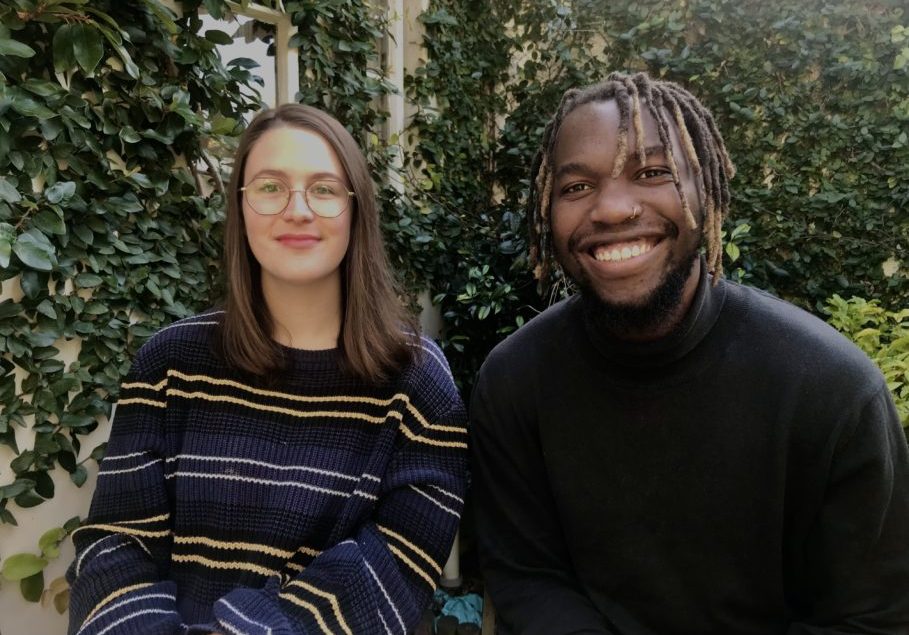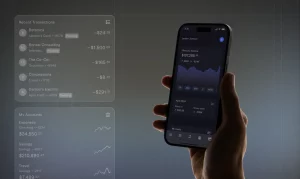“Leave Facebook and face your book!”
Almost every Nigerian has heard this punny reprimand at least once from a teacher or parent. Time spent chatting on social messaging apps has traditionally been deemed a frivolous waste of time, but as social commerce has gained popularity, people are beginning to see the potential of these platforms as viable business platforms.
Now that perception is about to spread even further in the country because an educational chatbot, FoundaMate, has launched in Nigeria. FoondaMate is a South African ed-tech startup giving students access to online learning resources in multiple languages through low-data instant messaging applications like Whatsapp and Facebook. It has now launched in Nigeria with a local WhatsApp number. As a result, Nigerian students can access localised learning materials, such as junior and senior WAEC examination papers from previous years.
The FoondaMate bot is on both WhatsApp and Facebook Messenger but the Whatsapp bot is more popular because the latter requires a Facebook account to sign up whereas Whatsapp just requires a phone number.

The origin story
Tao Boyle and Dacod Magagula introduced the API-based solution almost two years ago to address the inequities in the South African educational system. Magagula received his early education in a public school with a notoriously subpar curriculum and little to no access to actual or virtual learning resources. This gave him firsthand experience with the problem he is trying to address. Boyle, his co-founder, attended a private school and had a completely different educational experience due to her more affluent background.
She did, however, spend the majority of her university years working for an organisation that aimed to textbooks to low-income communities. This is where their paths cross: a shared belief that everyone deserves a quality education and a passion to ensure that children from low-income households are not denied it—hence their work at Foondamate.
Unlike most ed-tech solutions on the continent, FoondaMate is not a standalone platform, it is a chatbot on popular instant messaging apps—Facebook and WhatsApp. Students can chat with the bot to get assistance with their homework or practice for exams without leaving the messaging app. It is the perfect fit for people who can’t afford access to the wider internet.
Adopting the robot
Since its launch, over 500,000 students in South Africa and over 30 other countries like Zimbabwe, Nigeria, and Angola have used the South African AI robot to do their homework, study, and learn new things. After raising $2 million in a seed round, FoondaMate accelerated its efforts to localize its content so that, in addition to standardized study guides, students from other nations can access materials like exam practice questions that are unique to their regions.
FoondaMate launched in Nigeria for the same reason it did in South Africa—to be a great equaliser in the country’s educational system, where is a wide berth between the rich and the poor In the country. In Nigeria, more than 83 million people live below ₦137,430 ($381.75) per year and are only able to afford government-funded public schools where school fees cost little or nothing. The government, at different levels, has catered to the needs of these institutions rather poorly.
Teachers are underpaid and underqualified; libraries are bereft of books, and little to no digital infrastructure exists to support the learning of students. Moreover, parents are unable to personally provide essential learning materials such as textbooks and dictionaries for their wards. Neither can they afford the data bundles required to do personal research to get help with their homework and further independent study to prepare for school exams and national exams such as the Junior School Certificate Examination and West African Senior School Certificate Examinations—requirements to advance learning to senior secondary school and tertiary education respectively.
At the time of this publication, the FoondaMate bot can only provide past questions for the West African Senior School Certificate Examinations, but the company says that it is working on expanding its repository to include as many exams for different levels as possible.
How it works
The FoondaMate chatbot works the same way as chatting with a friend. You just have to message the specialised Whatsapp number or Facebook ID to begin a conversation. Once you send FoondaMate messages asking a question, it will fetch and summarise relevant information from the internet and send it as a response.
For example, a user can ask questions like “what is photosynthesis?” and get the answer in the chat. When preparing for specific exams, the user can request past examination papers, such as “WAEC biology 2013”. The bot will reply in the chat with a pdf file of the requested past examination which the user can download or share with others.

It can also be a study buddy for mathematical subjects, as students can send equations as a message to the FoondaMate chatbot, asking for the solution. The chatbot then searches the web and replies with a document showing a step-by-step solution to the mathematical problem. Not only can students look up past questions, study guides, and learning materials for hard subjects, but they can also look up the meaning of difficult words they encounter. All this happens within the chat—students do not have to leave Whatsapp during their studies.
Life in Nigeria so far
The bot has been live for about 3 weeks and it has already registered over 4,000 users on the Whatsapp platform. When asked about FoondaMate’s expectations in the country, Boyle, FoondaMate’s female co-founder, says, “Nigeria is a huge and young market, so there is great potential for helping people move from where they are to that next step, whatever that next step is for them. Being able to help somebody get to that next step is something that we really care about and something that we are excitedly looking forward to doing in the country.”
FoondaMate is particularly excited about the feedback they have been getting from Nigerian users.“Nigerian students don’t hold back. They tell you exactly what they think as soon as they see it. At first, we thought it would be difficult to get feedback, but it’s been completely the opposite,” Boyle said. “Students sign up and on the same day they email us telling us how much they love the product and recommending other things they would like to see on the platform.”
The business is taking all the feedback it is receiving into consideration and will use it to continue revising the solution to meet the needs of Nigerian students at their various educational levels.





















